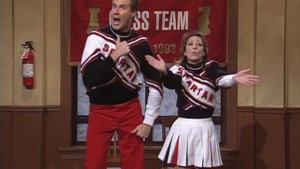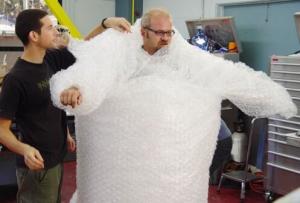Your humble blogger had a brilliant idea recently: why not skip the coffee for a few days? What could possible go wrong?
Well, I came *THIS* close to filing a workers’ comp claim for the resulting withdrawal symptoms (workers’ comp drives me to drink coffee, among other things, you see). In the words of Master Yoda: “Path to the dark side, comp is. Comp leads to exhaustion; exhaustion leads to coffee; coffee withdrawal leads to suffering.” (Thanks for the correction, MC)
So, if your humble blogger suffered so greatly from declining coffee for just a few days, how badly would an injured worker have suffered if deprived of serious pain medication upon which he or she relied for any extended period of time?
Consider, if you will, the matter of McCool v. Monterey Bay. Applicant was in a car accident way back when in 1983, resulting in several back surgeries, and ultimately a 52% award which included future medical care.
Well, lo and behold: a UR decision elected to deny authorization for various pain medications which applicant had been receiving regularly. Defendant elected to override UR and provide the pain medication anyway, but three months after the UR denial, applicant requested an expedited hearing out of concern that defendant would one day withdraw its good will.
At the hearing, the WCJ found applicant is entitled to future medical treatment, including the pain medication, until there is a documented change in circumstances, even though defendant continued to provide the medication at the time of the hearing.
Well, defendant sought reconsideration, and the WCAB granted. Initially, the WCAB held that absent a finding that the UR report was untimely, there’s no basis to review the merits of the UR decision, as per the en banc Dubon holding of the WCAB. Additionally, as applicant was receiving the sought-after medical treatment, there was nothing for the Board to do, as the commissioners and WCJs are not in the business of issuing advisory opinions to become effective in the event of some possibility in the future.
That being said, the WCAB also pointed out that the UR decision was internally inconsistent, both citing the need to slowly taper off pain medication, and then deciding to make applicant go cold turkey. Well, in the words of Homer Simpson “going cold turkey isn’t as delicious as it sounds.”
The WCAB cautioned that blind reliance on a UR decision that is internally inconsistent could result to a defendant’s referral to the administrative director for investigation and possible penalties.
So, all in all, a happy ending – applicant gets the treatment she needs! The defendant gets a victory! You get a blog post!
Here are some thoughts from your humble blogger:
So, for each UR decision, it’s not only important to review the decision for timeliness, but it appears that there is some threshold the WCAB would like to see met, which in this case was internal consistency. It would be interesting to note if the same burden is placed upon the defense for multiple UR decisions. For example, if UR denies surgery because of an injured worker’s weight, but the next UR decision denies lap band surgery because the injured worker is not overweight enough – is that internally inconsistent?
Also, it looks like the applicant took three months to file for an expedited hearing on the matter of medical treatment – shouldn’t there be some time limit on challenging a UR decision for any reason, timeliness or otherwise? After all, don’t circumstances change, opinions become stale, etc?
As far as your humble blogger is concerned, defendant did the right thing in this case – it’s both prudent and, dare I say it, human. But, often enough, it’s easy to put away a “denied” UR decision and let the applicant worry about the particulars, such as requesting IMR or challenging timeliness. This panel opinion serves as a cautionary tale for all of us.



